I am very uncomfortable writing this editorial. I am more of a behind the scenes, helping other people share their voice type-person. This is not because I don’t have opinions or critical thoughts about the world (I assure you), more that I don’t often feel right taking up the cyber-space to share my words/thoughts/musings.
About two months ago Nick told me about the tradition of writing end-of-year editorials, and my anxiety began immediately. To cope, I pulled multiple acrobatic maneuvers and successfully stalled publishing for nearly two whole months! The first few weeks were easy, there were many tasks lagging behind and we got booted out of the Arthur office in Sadleir House due to the ‘emergency break’ lockdown. The next few weeks we were on ‘vacation,’ and I was safe. When we started back up for the summer, the end of year financials for Vol. 55 and organizing our google drive earned me a few days but by then the jig was up. Editorials were at the top of the whiteboard list and my excuses were weaker (and more obvious); Nick knew what I was doing by then.
Who can blame me though?! I never asked to be a writer! I covet my role as a shadowy editorial puppeteer writing meta descriptions, zooming, communicating within the bounds of the email-politeness-industrial-complex.
It’s truly wild to be working at Arthur in the midst of a global catastrophe. I believe (but don’t know) that Arthur is founded on physicality. This might seem redundant -- it feels like all we did pre-pandemic was physically be together. What I mean is that the construction of Arthur was always very physical, involving typewriters, photocopiers, collage of all sorts. Making the paper required being in the same space as other people and as the thing itself you are creating. In recent years, this physicality has waned, especially with the use of document sharing platforms like the one I am using to write this.
Now Nick and I don’t put together the paper, we have a very different relationship to what we are producing. Now we are unstuck from space and the physicality of curating ideas through text and images.
In years past, Arthur has been a guest in public space. Again, people physically encountered the paper on coffee tables, bannisters, bus stop benches, in the student centre, at clubs’ meetings, holding up a crooked table leg, perhaps protecting a table at the Spoon from an artistic demonstration, perhaps in the trash -- though never intentionally. Now readers experience Arthur as scrolling, and blue light, and clicks from one tab to the next. This has made me sad, and often disoriented. Beyond the sadness and disorientation of doing this job inside a laptop, disconnected from Trent students, readers, community members, has been the tragedy and disconnection of this ungodly year. I don’t need to explain this, we all know this and I know I am not the first to say that even when the acute pain of the pandemic departs, the background noise of injustice, reverberations of medical inequity, will upswell in its wake.
When Nick and I interviewed Trent professor Colleen O’Manique earlier this year, she said something that has stuck with me since. We were working on a podcast about COVID, vaccine roll out, and she was helping us lay the groundwork for this discussion.
As we were closing up the interview, O’Manique made an offhand observation that she thinks things are changing. What she specifically meant is that people are recognizing injustice for what it is. The now well-worn aphorism that ‘the pandemic is revealing inequities that already exist’ is striking a chord for those that wouldn’t have normally cared, or had the time to care. For over a year now, the public’s attention to crises seems rapt.
“I am actually cautiously optimistic” she said, “because there’s so much more grassroots organization going on, and sort of networks of networks sharing strategies and also people are becoming more knowledgeable and pissed off about what’s going on and so hopefully we’ll see more political mobilization around these issues.”
I was initially skeptical, as I wasn’t seeing drastic shifts in my own immediate community (granted, one already built on years of student networks) but I’m on board with O’Manique now. It is watching people come into resistance, take up position and take up the tools to do it. While journalism isn’t the only, or even the best way to do this, I think it’s an extremely valuable method.
I was nervous the first week we trained our summer staff because the news cycle had been particularly brutal: the harrowing murder of the Afzaal family, the escalating attacks related to Israel’s occupation of Palestine, and the revelation of the unmarked mass grave in Kamloops, 215 Indigenous children buried at the site of a residential school. Canada, and those who believe in it, had been thrust into yet another reckoning -- this one hopefully much harder to explain away, to turn away from. Reading op-eds about the brutality of the news cycle, unearthing of pain for Indigenous people and communities across this land made me feel sheepish, and guilty that we would ask people to come into work much less run a full week of training -- shouldn’t we be mourning?
Throughout that week I held that anxiety, watching for signals of burn out from the new writers. It occurred to me slowly that we might be doing something therapeutic. We were arming a handful of young people with tools of analysis, and of action. I think the hours-long discussion of the perniciousness of the concept of objectivity in journalism presented something of benefit during that week.
I am humbled by the voices that have emerged from Arthur this year. This is a hard job. Balancing the needs of your community, with journalistic ethics, and the demands of your own voice is a very difficult thing. I have watched people come tentatively into their roles at Arthur and become more confident and skilled with every story.
I am looking forward to a year with fewer ‘firsts’ than 2020. I’ll enjoy the fever-dream-hot-yet-damp, Peterborough-Nogojiwanong summer we all deserve -- I hope you all get that too.
Wow, ending this editorial makes me feel like that hot lady from Sex and the City.
Xoxo
Braz
A P.S. for aspiring Arthur editors: when I linked up with Nick to run for the Arthur editorship in 2020, I had only one 2017 article to my name. In fact, I wrote four articles in the month-and-a-half leading up to our election in order to be eligible to run. I hope it comforts you to know you can be the ‘me’ of Vol. 57. You do not need to be a journalistic rock-star like Nick, who worked for Arthur throughout almost all of their undergrad. (Though you may be the ‘Nick’ and that’s great too!)
I think the editorship requires a willingness to be dedicated to the position. You’ll need to be willing to collaborate, to be brave and do things that make you want to barf (like talking to strangers every day of your life, like editing audio of your own voice). You’ll need to be open to new people and new experiences, to being wrong, to not knowing what you’re doing, to public embarrassment, and throwing yourself out there. You should also be willing to take the year off school, I did three courses throughout my first year as Arthur editor and I would not recommend it. I think the editorship works best as a team of people with complementary, not identical, skill sets. Rest assured, you don’t need to hold every skill to make this organization work. If you are at all interested in even the fantasy of being co-Editor-in-Chief do not hesitate to ask to chat with us so we can tell you what you need to know. There’s no harm in asking!





.png)





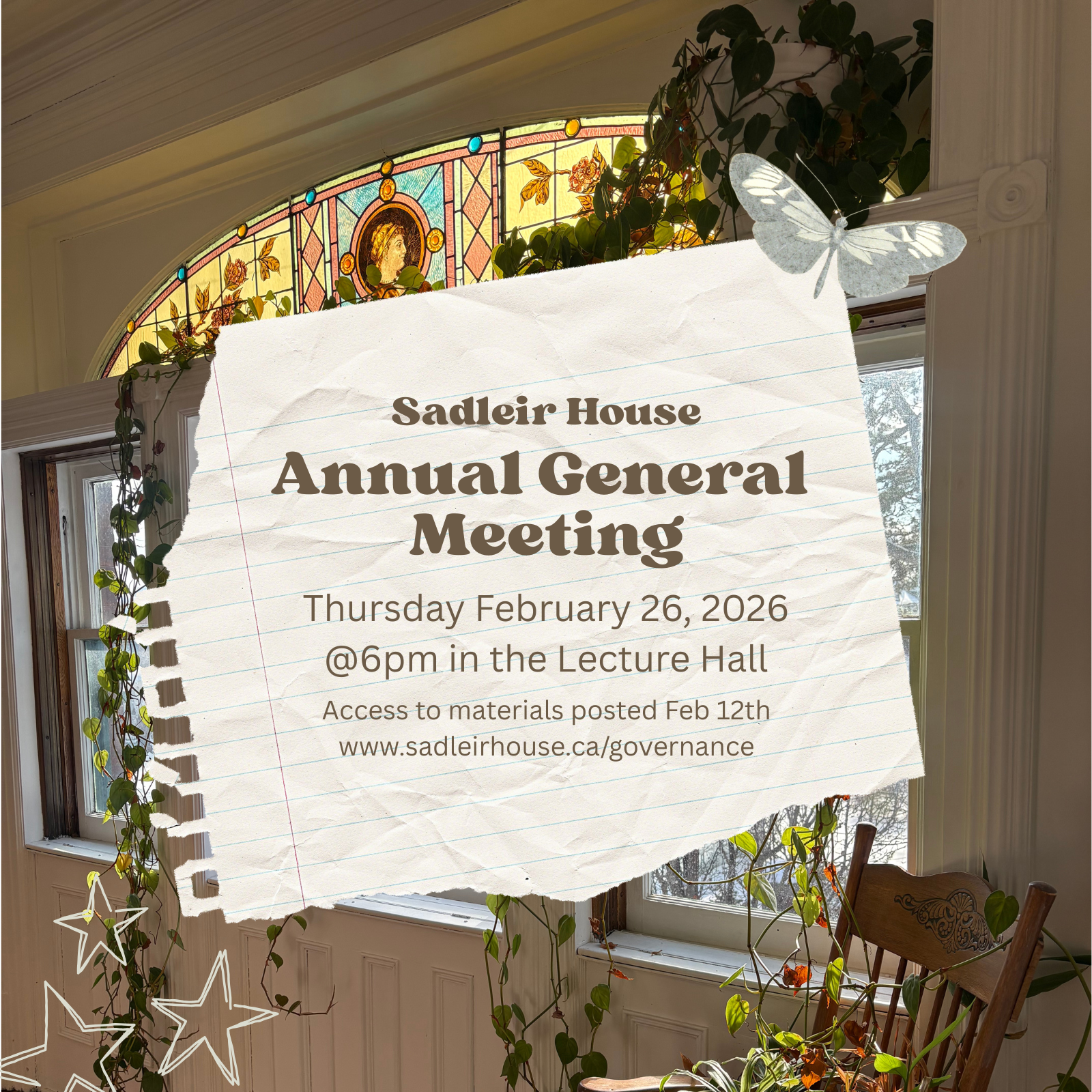

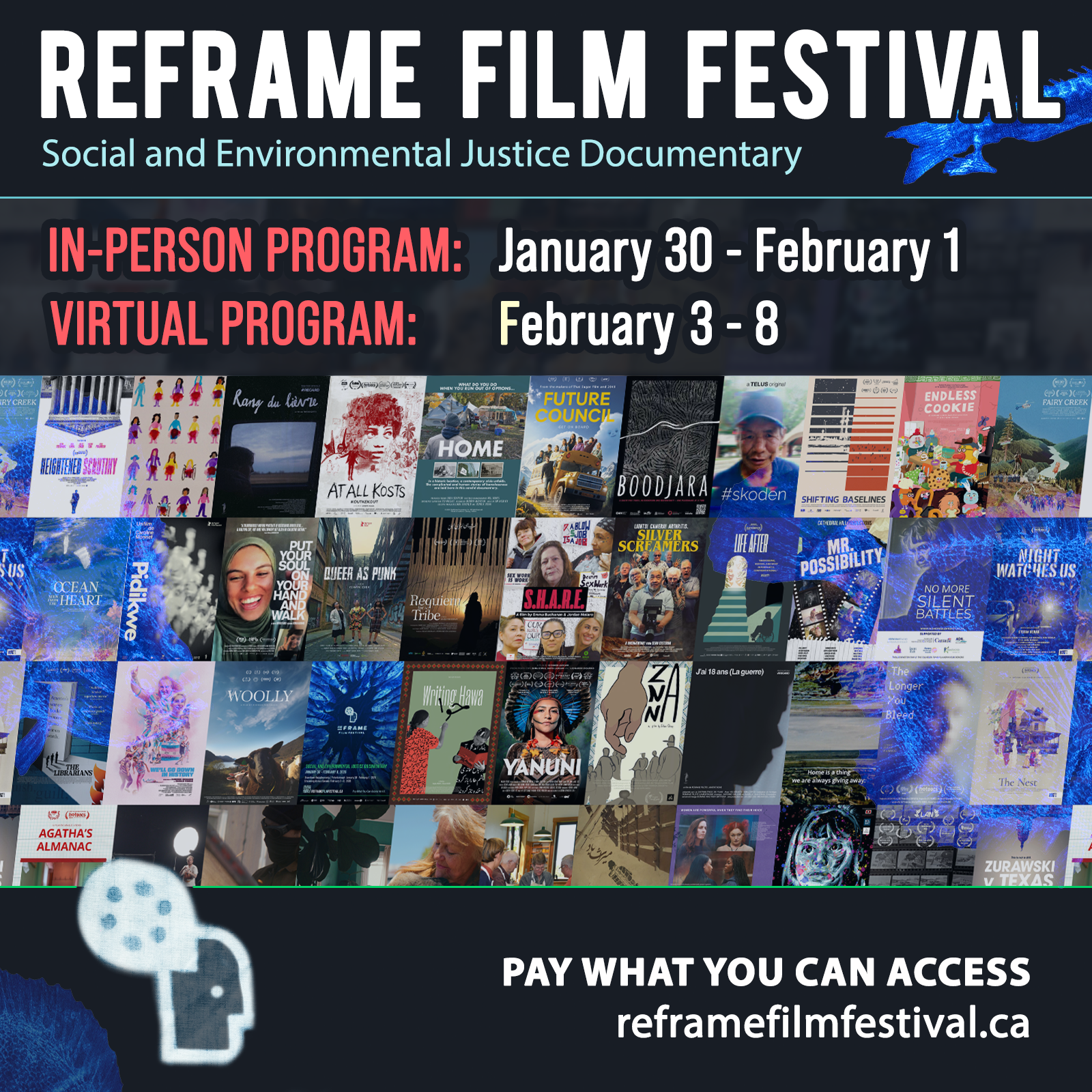





.jpg)
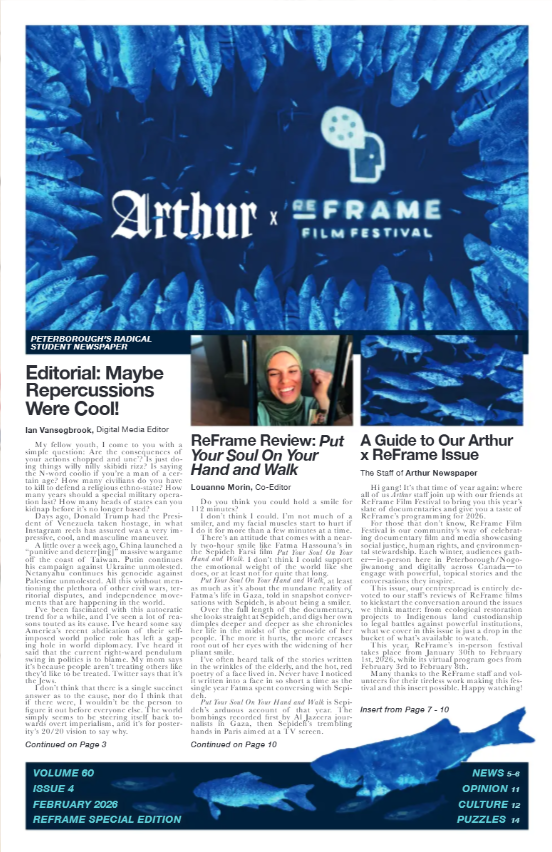
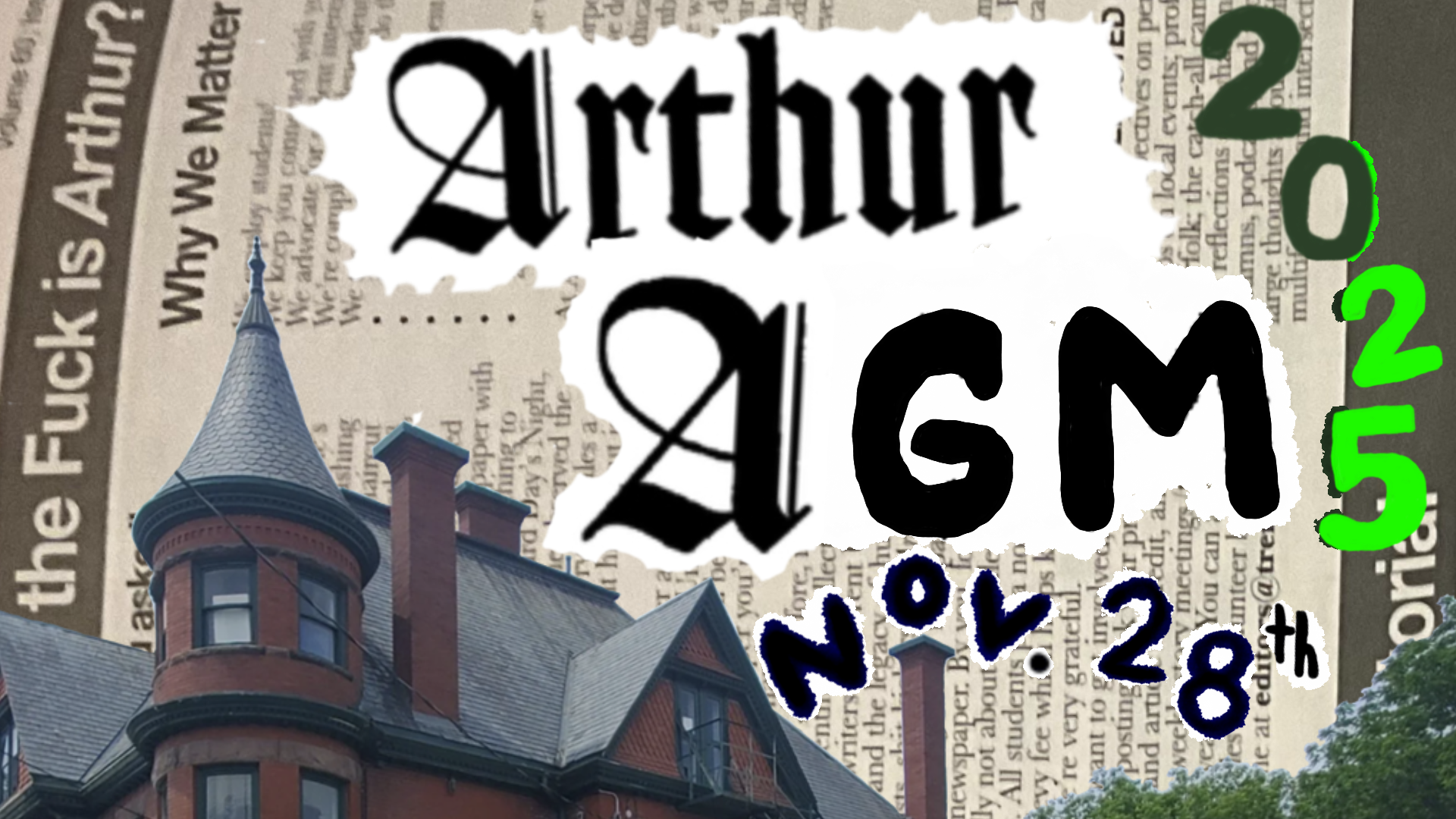

.jpg)

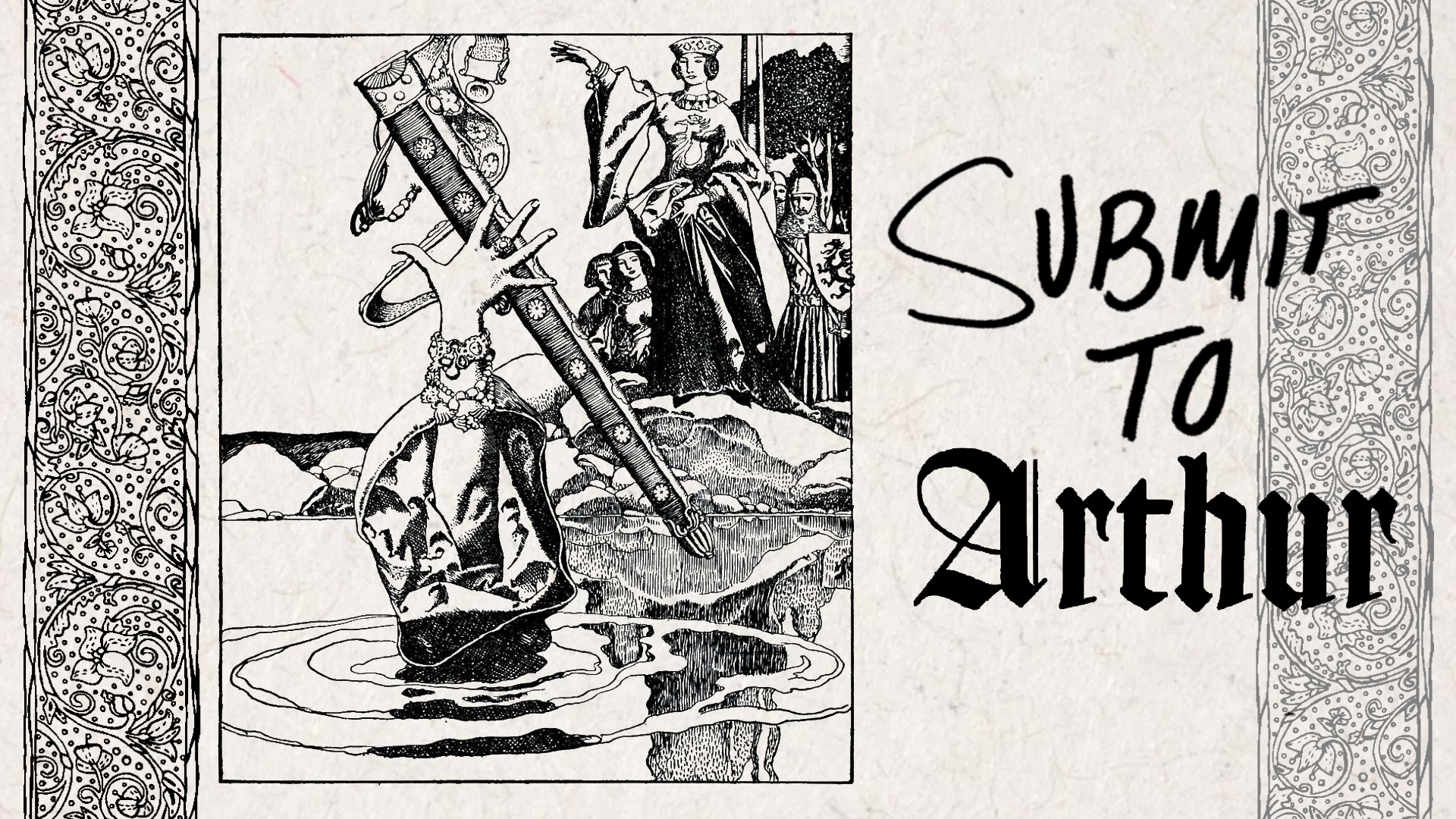


.jpg)
.jpg)

.png)